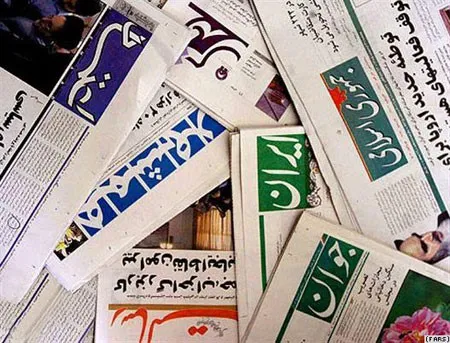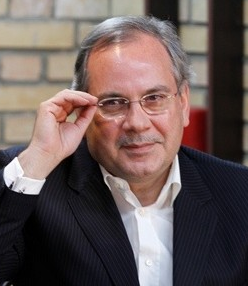
Why does political engagement in our society rarely have a good outcome?
Those countries that do not implement systems in their governance inevitably delay their own development. Modernity is not the end of history. If a country possesses a new vision or fresh ideas, it should reform and build upon modernity. The ability to influence and be influenced creates the foundation for growth and development. The day a politician in our society writes their memoirs—and the text is filled with joy, meaningful work, service, and contribution, without complaints of exclusion, exile, marginalization, injustice, or disrespect—that will be the day political engagement has had a positive outcome in our society
Over the past century, the majority of modernity’s products have been transferred to the country: from electricity and railways to automobiles and airplanes; from loudspeakers and tape recorders to streetlights and tractors; from printing presses and banknotes to radio and television; from vacuum cleaners and washing machines to eyeglasses and pressure cookers; and finally from ATMs and computers to mobile phones and the Internet.
Yet alongside this broad spectrum of products—used by everyone, regardless of their background—the philosophical and theoretical foundations of modernity have merely been conveyed in the form of translated books. Some of the theoretical underpinnings of modernity that arrived “unaccompanied” by their products include: freedom of the press, the right to dissenting thought, a party-based system, power rotation, professionalism, government critique, civil society, recognition of opposing views, the public interest, efficient bureaucracy, national interests, and separation of powers. Although there is much writing and many lectures on these concepts, they have not been embedded institutionally or internalized into the mainstream subconscious. And, of course, without oil revenue, the wide-scale importation of modern products would never have occurred.
Not surprisingly, cultural acceptance of pluralist ideas is far more difficult than importing mobile phones. First, it demands reading. Then it requires public debate, years of practice, and international engagement for a society to deeply appreciate intellectual competition and the immense benefits of diverse ideas. No country has grown and progressed without exchanging goods and services with the world.
A political system must possess enormous self-confidence to legally enshrine press freedom and not fear criticism. In the UK, press freedom wasn’t granted by Boris Johnson—it is codified in clear law. A party system naturally brings power rotation and inherently promotes stability and hope for improvement. Establishing a competitive party system is the most serious legal and political achievement of modernity, born from years of discussion, philosophical consensus, reading thousands of books, and much practice—and it cannot be bought with oil money.
Realizing the public interest, national interests, and separation of powers are lofty endeavors that must be rooted deeply within the raison d’être of a governing body through study, reading, and understanding the responsibility of governance. Acquiring and implementing these theoretical products is not comparable to importing an ATM or a mobile phone. It’s no wonder that these intellectual products lack mass appeal—they require reading, thinking, and change. Not changing requires neither reading nor reflection.
Anyone who experiences political life in a Third World country quickly recognizes a few facts:
- There is no system—what operates are “networks of patronage” (courtiers and loyalists).
- For anything to move forward, it must align with the interests of those at the top—not with science, planning, or rules.
- Preserving the status quo becomes the primary goal.
Once this realization dawns, individuals face several choices:
- Option A: Stay in politics and benefit fully from it—the closer one becomes to being a true loyalist, the more rewards one receives. They might even do some good work, but they don’t question, doubt, or seek change. Politics, leadership, or ministry equals a better life: money, travel, prestige. And when danger looms, they simply step off the stage (e.g., Houshang Ansari, former Finance Minister and head of the National Iranian Oil Company under Mohammad Reza Pahlavi).
- Option B: Stay but critique. They ask questions, present their views, sometimes say “no.” They try to enact change without overthrowing the system, using logic and global human experience. But because they never fully commit to the patronage network—only 30–40% loyalty—they eventually reach a point where they can’t accomplish anything. Their partial loyalty cannot coexist with governance guided by science. In the end, they’re removed, retreat to non-political spheres, and abandon politics (e.g., Alinaghi Alikhani, Finance Minister under Pahlavi).
- Option C: Stay and push for radical change. They reject loyalty-based networks and pursue rule-of-law, science, regulation, programming, consensus, and growth. They hold principles, adhere to ideas, and aren’t seeking their patron’s approval. They argue, hold their views, and aim to untie the people’s knots—not just to question, but to clash. This threatens entrenched interests and leads not just to dismissal but to exile, marginalization, house arrest, or demise (e.g., Amir Kabir, Mohammad Mossadegh).
- Option D: Exit politics or never enter. They realize that without system and rule, no meaningful change is possible. They’re not interested in exploitation, don’t believe in patronage, and see politics in a rule-less environment as a futile endeavor (e.g., Gholamhossein Sedighi, sociologist and minister under Mossadegh).
Importing modernity’s products without internalizing their theoretical foundations ultimately results in inefficiency and disorder. This type of selection is shallow. Egypt is a prime example of what development literature calls “uneven development.” Where there is no system, professionals’ expertise and energy are wasted, projects pile up, society’s movement becomes turbulent and unstable, history repeats itself, and errors accumulate. Politics rooted in networks of patronage leads nowhere.
Building an efficient governance system is no easy feat. The West is still evolving in rationalizing governance, with many gaps remaining. This reveals that—despite the legal establishment of modern dimensions in the U.S. Constitution of 1776 (and its 27 amendments to date)—rational governance is an ongoing process. Effective governance remains a major challenge even in advanced societies today. Without a system, there’s no efficiency or hope for improvement. Politics—and engagement with it—should serve change, not preservation of the status quo. Politicians who fail to create positive change waste both their own time and society’s resources.
Today in Asia, countries such as Vietnam, Indonesia, South Korea, Malaysia, Singapore, and China have moved away from patronage-based governance systems. In at least economic and social management, they are strongly influenced by competition, intellectual exchange, learning from the world, efficient bureaucracy, recognition of rival socioeconomic ideas, and specialization. They even process the public interest institutionally. Some, like South Korea, have developed advanced stages of media freedom, party systems, and power rotation. Where systems are lacking, mediocre personalities—capable of changing their worldview five times a day—rise to power, while truly capable individuals—personally and technically—are sidelined.
Modernity is a human experience—not exclusive to France, England, or the West. Every person on Earth is familiar, at minimum, with modernity’s products. Its greatest scientific and social achievement is system-building. Just as an airplane, ATM, washing machine, and the Internet are all systems, so is modern governance.
Countries that do not apply systems to governance delay their development. Modernity is not the end of history. If a country is equipped with new ideas, it should reform and build upon modernity. Influence and responsiveness form the basis for growth and development. Whenever a politician in our society writes their memoir and it is filled with joy, work, and service—without complaints about removal, exile, marginalization, or disrespect—then politics in our country will have had a positive outcome.





